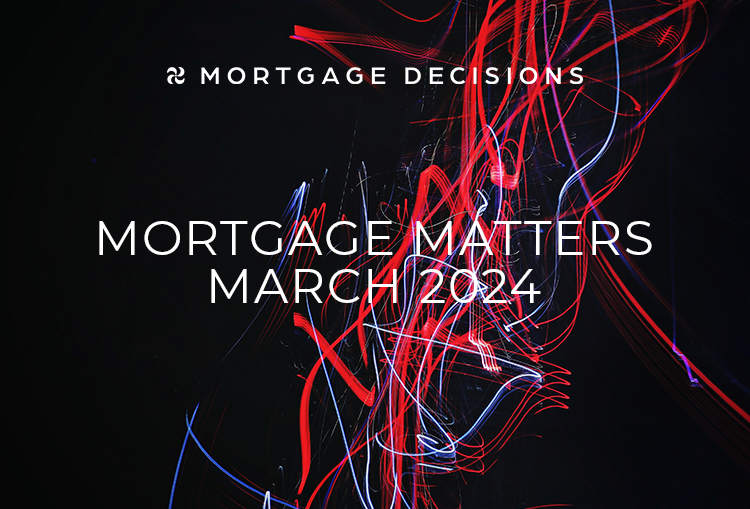- Mortgages
Mortgages
Bad Credit Mortgages
- Shared Ownership
- Insurance
Insurance
Life Insurance for Families
Life Insurance for Seniors
- Specialist lending
- About
- Events

Inflation stood at 4% in January, the same level as in December 2023 (ONS). Swap rates have been creeping up in recent weeks in the lead up to the Spring Budget, meaning several large lenders have been increasing their borrowing costs, including HSBC, Barclays and NatWest. However improved inflation forecasts, predicted to fall below 2% in a few months’ time, are good news for interest rates and the mortgage market (Office for Budget Responsibility).
The average cost of a two-year fix is 4.98%, while the average five-year cost is 4.62%, having risen from 4.73% and 4.38% last month respectively (Better.co.uk). However, the number of deals on the market has increased to 6,004 at the start of March, from 5,787 a month earlier (Moneyfacts). Lenders are still looking for reasons to lend, for example, Santander has increased the maximum loan-to-value available on newly built houses and flats to 95%, helping more buyers get onto the property ladder sooner, while also supporting the transition to more environmentally friendly properties.
Average mortgage product fees have risen, currently standing at £1,141, which is £46 higher than a year earlier (Moneyfacts). However, the “effective interest rate”, the average interest rate paid on newly-drawn mortgages, is still creeping down, falling by 0.9% in January to 5.19%, and lower than the highs of 5.34% in November last year (Bank of England). In an ever-changing market, it is increasingly important to seek professional advice to help navigate the landscape and find the best deal, by accessing cost saving incentives or a lower product fee, even if rates are marginally higher than a few weeks ago.
Despite small fluctuations in mortgage rates, confidence is steadily returning to the market, with buyer demand 11% higher than at the same time last year (Zoopla). There were 55,227 mortgage approvals in January, the highest level since October 2022, as relatively lower mortgage rates boosted affordability and confidence. The announcements in the Spring Budget, including the reduction of property gains tax to 24% and abolishing the tax relief on furnished holiday lets, may stimulate the market and boost transactions, increasing the demand for people needing mortgages.
The availability of deals at the 95% loan-to-value tier has increased to 274 deals, its highest level since 2022, indicating that lenders are still keen to support borrowers with smaller deposits (Moneyfacts).
Average deposits for first-time buyers (FTBs) reached £53,414 in 2023, around £21,000 more than a decade earlier. It’s therefore unsurprising that almost two-thirds of people taking their first step on the property ladder were doing so in joint names (Halifax).
First-time buyers generally purchase at levels below the local average, significantly lower in certain regions around the UK. On average, they are spending £20,300, or 8%, below the average local property price, increasing to £137,800 (26%) in London (Zoopla).
Now, more than ever, it is crucial to seek guidance from experienced mortgage specialists. Contact our team at 03454 500200 for expert advice.
Disclaimer: The above is for information only. Independent regulated financial advice should always be sought when considering mortgage matters.
Your home may be repossessed if you do not keep up repayments on your mortgage.
There may be a fee for mortgage advice. The actual amount you pay will depend upon your circumstances.
The fee is up to 1% but a typical fee is £595.
